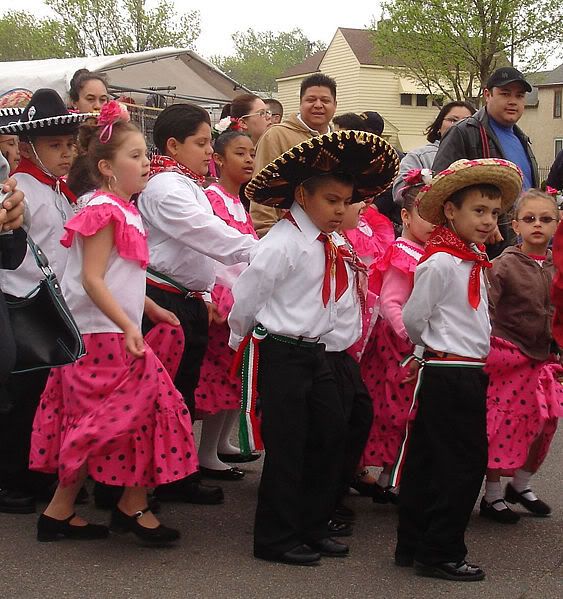In his book
Mythologies, Roland Barthes describes the ways in which goods have become part of our cultural mythology; how we deify the brands that we buy and how they shape how we see ourselves:
"Advertisements... also indicate the effect of the product... but they chiefly reveal its mode of action; in doing so, they involve the consumer in a kind of direct experience of the substance, make him the accomplice of a liberation rather than the mere beneficiary of a result; matter here is endowed with value-bearing states"
Despite the fact that Barthes wrote this book in 1957, I would say this belief is true now more than every. To start off this discussion, I am going to use a recent acquisition of mine.
A few months ago, my brother went to New York City for a visit; while there, he picked me up a pair of "7 Jeans for All Mankind". I wore them for the first time today, and here is what I thought:
1. Comfortable
2. They fit nicely
3. Feel to be of high quality
And these three things they should be, the original price was $130 for a pair of jeans (granted my brother did not pay anywhere near that price). But those three things alone are not enough to warrant a price that high.
So what, in my ever so humble opinion, set these jeans apart from others I've worn?
The pockets.
They are lined with a satin like material, very soft and slick.
So that is the difference between this and other jeans, the pockets. Jeans that have been touted by celebrities as "their personal favorites and the best jeans they have ever worn."
What do the ads say? Well, I think the best way is to look at how they are defined by what they are called: 7 for All Mankind [Seven Jeans for short]. I also think it is important to look at the other brand they are grouped with: True Religion (as immortalized by that wonderful diva Fergie). The brand name of both of these jeans imply something that should be universal, something that is true and benevolent. Something that defies social status and situation and applies
for everyone. Thus, returning to Barthes, the ads for 7 Jeans and True Religion want the consumer to believe that by buying the jeans that they are involved in the liberation of the world, of releasing universal truth through denim. The performance of an act that is defined by exclusivity is supposed to signify universalism.
Interesting, huh? This is also true of the "lesser" subsidaries of designer houses, such as Moschino's "Cheap & Chic", Armani's "Armani Exchange", and Dolce & Gabanna's "D&G", which are advertised as the cheaper versions of the designer's main collections. Cheap for who? What does the participation of the consumer mean in this scenario: "Oh, I'm just going to buy off of the ready-to-wear rack, I'm not that full of myself" when really they are only presenting the facade of being an "everyperson".
This idea of participation in a movement and ideal through consumerism is also apparent in the "green" phenomenon. When I worked at Target, a line of "eco-friendly" message T's was released and they sold like hot cakes (and no, they weren't on recycled or organic T's). My thought was, "If they really cared about the environment, they would have shopped at a thrift store..." In our society, we are told that activism goes about as far as our checkbooks, that if we buy the right things we will be DOING the right things: the (red) campaign and Ethos Water (both of which are total crocks, in my opinion) are great examples. Rather than give money directly, buy something at an outrageous markup so a small percent goes to the charity.
After saying this, I would like to say that I am definitely guilty of falling into the trap of consumerism, and I have a good example of that from this weekend. As posted earlier, I have been having computer troubles for a long time. Long story short: I won't ever shop at Best Buy again, and I ended up with a brand new MacBook. Oh the joy of joys in my heart, I could finally break away from Windows!
But now, looking at it from this angle, I see things that trouble me. Why do I like Apple so much? Because it represents something to me - operating outside of a giant that monopolizes the computer industry. But then I realized something: Mac had monopolized my digital life. I ended up buying an iPod, now a MacBook, and as soon as I can I plan on getting an iPhone. Aren't I just as bad as those people I mocked earlier about the jeans and the Product (red)?
Well, I am going to be big enough to say it: I am just as bad. But I think another question is, are we being told that there is no other way to think about things? Another Barthes' quote I love is: "advertising is responsible for promoting the myth of free will". We are bombarded by advertisements virtually every moment of our connected lives - even face to face contact is plagued with advertisements if you know what symbols on clothing to look for. In advertisements, we believe that we can make the difference in our lives, and choose what we buy. But I want to pose the question: Do we actually chose what we buy, or are our purchases already decided for us by advertising/marketing/branding?
Let me put this another way: Considering that products are so specifically targeted towards people, can we ever get away from what is sold directly to us? I would actually argue no, we don't really chose what we like. I consider myself an individual who likes to stand out and be different, so I buy things that say that about me, which are, surprise surprise, items that have been specifically marketed towards people like me. If we look at things this way, did I really have any other choice than to buy an Apple?
Even those who want to try and escape still fall into the trap. For example, I don't like to buy clothing that has the name of the store written on it (well, maybe if it is on an outside tag, but it can't be obvious). Now, I love American Apparel, because I think the clothing is good looking, well made, is basic, and - most important, for me anyway - I know it hasn't been made in a sweatshop. But even this says that I was destined to buy these products; workers' rights are important to me and American Apparel is exploiting my soft spot for companies' paying their employees living wages.
What can we do to escape this system? The problem lies in the fact that we exist in an epistemic system that entraps us within a series of signs that is reliant upon brand name and advertising. I mean, think about the use of words like Xerox, Kleenex, and even Google; these have become an integral part of our linguistic systems, and thus in our very formation of the world. I have often said that language is a radical problem in oppressive systems, because the oppressors can define what language is allowed, and how it is used. The problem is: I don't have a solution, I guess that is something that will just have to be worked on.
Until then, I will enjoy my MacBook, even if I had no other choice than to buy it. I would like to not seem so fatalistic and think that my use of Macs stem from the fact that it is a superior product. Honestly I believe they are, but I know that my INTENSE desire to have one, even though it means paying more, is because it has been targeted to create and fulfill desires that I have.
That said, I sure as hell don't regret buying it. :)
 Honestly, I don't think I have to say anything else.
Honestly, I don't think I have to say anything else.




